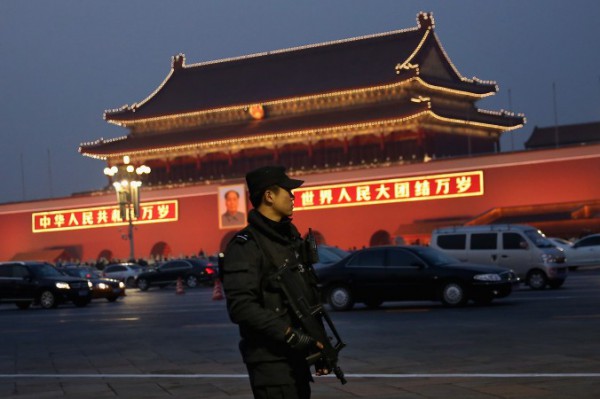
The Standing Committee of the National People’s Congress on April 26 approved revised amendments to the Counter-Espionage Law of the People’s Republic of China, in the first revision of the legislation since 2014. Under the previous law, threats to national security narrowly concerned state secrets. However, the new provisions broaden the scope of “espionage” to encompass any action, document, data or material which may be considered a threat to national security by state authorities. The reforms also expand the duties of law enforcement personnel in countering espionage activity, and the definition of “spying” has been broadened to include cyberattacks. The reforms follow President Xi Jinping’s new emphasis on strengthening “national security.”
The amendments will go into effect in July 2023.
From Jurist, April 28. Used with permission.
See our last report on the crackdown on dissent in China.
Photo: chinaworker.info





China: eight-year term for rights activist
China sentenced lawyer and rights activist Guo Feixiong to a prison term of eight years on May 11, with diplomats from several countries saying they were barred from the trial in the southern city of Guangzhou.
The sentence follows terms of more than a decade in prison each handed to two prominent rights lawyers, Ding Jiaxi and Xu Zhiyong in April. (VOA)
Guo Feixiong, also known as Yang Maodong, was on hunger strike for several months while in detention. (RFA)
Nanjing dissident journalist Sun Lin dies after police raid
Nanjing dissident journalist Sun Lin, who used the pen name Jie Mu, has died following a raid by state security police on his home last week, Radio Free Asia reports. “On Nov. 17, police reportedly entered his home, and neighbors later heard loud noises,” the overseas-based Chinese Human Rights Defenders network said on Twtter. “At 2:44 p.m. he was sent to hospital; dead at 5:45.”
“At the hospital, Sun Lin’s family requested to see his body, but the state security police refused,” the group added. “Medical staff at the hospital said his clothes were torn and he had suffered head injuries, indicating he was beaten to death.
In a profile on its website, Chinese Human Rights Defenders describes Sun as an “independent journalist who has reported on human rights violations and the corruption of Chinese officials.” He was convicted of “inciting subversion of state power” in December 2018, and served a four-year jail term in connection with his social media posts, and for shouting “Down with the Communist Party” at a party meeting in Nanjing. He had also served an earlier four-year prison term starting in 2008 for “gathering a crowd to disrupt public order” along with his then wife He Fang, after he refused to stop reporting on forced evictions at a Nanjing factory.
Rights group accuses China of collective punishment
Madrid-based human rights organization Safeguard Defenders published a report charging a practice of collective punishment by the Chinese government against human rights defenders and their families. The report was released Dec. 10, International Human Rights Day.
Entitled “Families in Fear: Collective Punishment in 21st Century China,” the report documents what it describes as the Chinese Communist Party’s use of collective punishment as a tool to “coerce confessions, frighten family members from advocacy and silence overseas critics.” (Jurist)